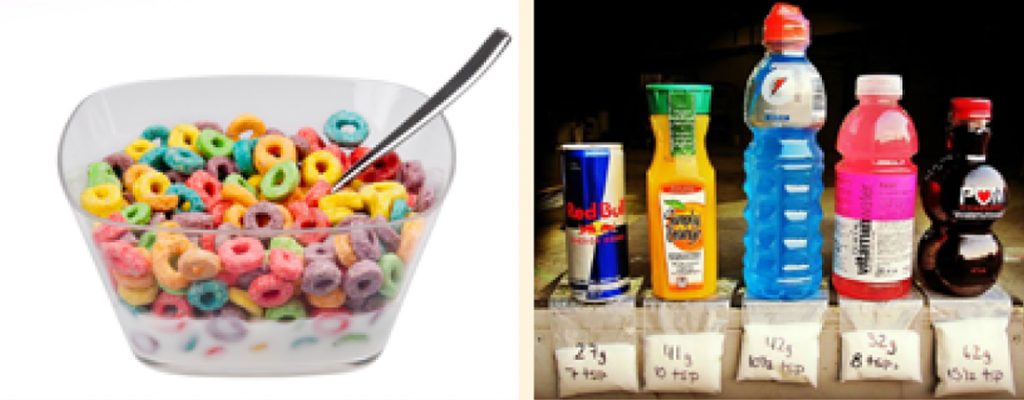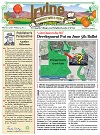Recently, I attended a weekend meeting of our American Academy of Pediatrics 25th annual conference on “Current Advances in Pediatrics.” The conference provides an opportunity for more than 200 community pediatricians from throughout California to get together and share the latest science and “best-practices” for improving the health and lives of our patients.
For me, the biggest take-away lesson from the conference was a reminder of what my mother, Lena Friedman, a microbiologist, often told my brother and me when we were just kids, 60 years ago: “You are what you eat,” she used to say. She was way ahead of her time.
Too Much Sugar

Popular cereals, juices and even supposedly “healthful” drinks are loaded with sugar and are making our kids sick.
Today’s message: Our kids eat way too much sugar — and it’s not making them “sweet.” It’s making them sick, and even shortening their lives. As pediatricians, we are seeing more and more young children afflicted with serious diseases that were once thought to be pretty much confined to adults and seniors — obesity, type 2 diabetes, the metabolic syndrome of insulin resistance, and fatty liver. According to Robert Lustig, M.D., a professor specializing in pediatric endocrinology at UC San Francisco, the cause of this epidemic of “adult” diseases in children is clear — lots and lots of sugar loaded into sugary cereals, juices, sports drinks, and soft drinks.
“Sugar is sugar,” Dr. Lustig noted, even though it might appear on a label hidden under a different name: cane sugar, organic agave, maple syrup, honey, high fructose corn syrup solids. There are more than 50 different names for what is, in fact, sugar. They all cause our pancreas, no matter what our age, to secrete insulin. When there is too much sugar and not enough insulin, sugar turns to fat and is stored in the liver. This is why we see children with non-alcoholic fatty liver disease, which looks the same as fatty liver disease that afflicts alcoholics and can lead to scarring and fibrosis of the liver, with impaired liver function and even early death.
Of course, Dr. Lustig’s message is scorned by the multi-billion-dollar food and beverage industry, although it is supported by an abundance of scientific evidence published in peer review medical journals that all reach the same conclusion: Sugar is toxic, addictive, and very bad for your health and the health of your children.
Making Some Changes
So, let’s make some changes, beginning with beverages that are such a huge part of the problem. We don’t need sodas, sugared sports drinks and juices in our kids’ lives — whether at home, in school, or in school lunch packs. When you bring snacks for your child’s sports team, water is just fine. In fact, it’s the best beverage of all. Why not make a New Year’s resolution — to rediscover the calorie-free, weight-controlling, healthful benefits of water as the everyday beverage of choice? This might be the single most important step you can take to improve your children’s health, and your own health, in 2018 and beyond.
REFERENCES
“The Use and Misuse of Fruit Juice in Pediatrics” by the American Academy of Pediatrics, Committee on Nutrition: http://pediatrics.aappublications.org/content/107/5/1210
“FAT Chance: Beating the Odds Against SUGAR, PROCESSED FOOD, OBESITY, and DISEASE” by Robert H. Lustig, M.D.
- Keeping Your Family Safe This Pool Season - June 26, 2024
- Keeping Kids Safe On & Off the Baseball Field - May 31, 2024
- Are Electric Bikes (E-Bikes) Safe? - March 7, 2024



